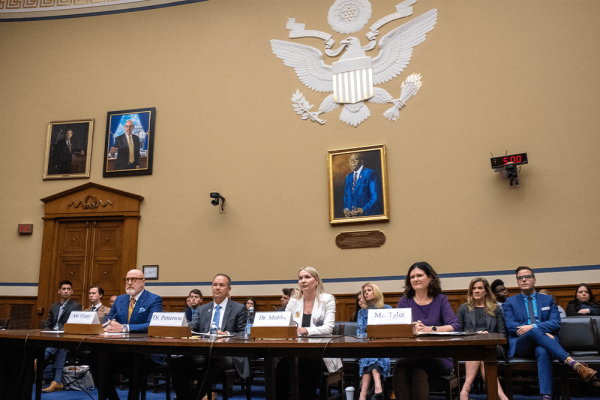Wars, by their very nature, often force people to choose sides and dehumanize the other side to justify violence. We’ve seen the dangers of this binary here in the U.S. as some student groups in support of Palestinian liberation have wrongfully praised or failed to condemn Hamas’ attacks, while some pro-Israeli groups (including many U.S. Christians) have failed to acknowledge the injustice of the ongoing occupation of Palestine and the severe death toll Israel’s response has inflicted on Gazan civilians. Yet while the powers of the world want us to take a side and declare ourselves fully (and exclusively) pro-Israeli or pro-Palestinian, Christian compassion must be freed from favoritism. As peacemakers, we must honor the image of God in every Israeli and every Palestinian.
The Episcopal Church’s executive council voted to form a committee to investigate the church’s involvement with forced adoptions that occurred between the 1940s and ’70s.
Thirty years after the release of the Steven Spielberg film that brought T. Rex to the silver screen and turned velociraptor into a global superstar, I sat in the theater watching Jurassic Park again. But this time, it wasn’t the giant dinosaurs that captivated me. It was a small, intimate conversation between Hammond and Sattler.
I remember the moment I became wholly dissatisfied with Christian conceptions of forgiveness. While walking into church for a Sunday morning class on the Lord’s Prayer, I realized that I did not know how to “forgive others” as God had forgiven me. Defining forgiveness as “moving past and forgetting harm” was vague and hard to fathom. I had repeatedly seen the powerful weaponize the instruction to “forgive” against the oppressed and abused: Black people told to “forgive” the U.S. for chattel slavery; women told to “forgive” husbands who abused them; survivors of sexual violence told to “forgive” the church. Surely, this was not the forgiveness Jesus instructed. But I couldn’t escape the feeling that “forgive” was still a command for Christians to follow.
The nations of the world — including the U.S. — are against them. They use money, weapons, diplomacy, and theology against the people of Palestine, the people of Gaza. They talk among themselves about where we will end up after our ethnic cleansing, as if we were extra boxes that have no place in the house!
Lost in the conversation about abortion rights and religious liberty is the fact that many Christians are not merely politically in favor of abotion access, but theologically in favor as well. These attempts to restrict abortion care and reproductive rights — even to the point where it puts the lives of pregnant people at dire risk — go against our Christian faith.
Democratic and Republican lawmakers at a recent House hearing vowed to uphold religious freedom — yet disagreed about the biggest threats and whether that work should start at home or abroad.
I am not interested in a commercialized version of Día de Muertos; parades, concerts, and celebrations where I must buy a ticket are an invention of capitalism. I am interested in the family remembrance rituals, in the nights at the cemetery communing with loved ones, in the ofrendas set up in homes, schools, and public plazas.
Growing up as a Christian in the U.S., I was told that Jesus came to die on the cross for our sins and establish the Christian religion. It’s embarrassing to admit, and stands as an example of the way in which casual antisemitism saturates Christianity, but it was not until my college years, after encountering Chagall, that I realized Jesus was distinctly Jewish and that Jews had been offering unique and refreshing ways to see Jesus throughout history.
Writer, art curator, and expert, Aaron Rosen is continuing that tradition, offering new ways to see Jesus from his context as a practicing Jew by inviting people to imagine Jesus as a visual thinker. Aptly titled What Would Jesus See, Rosen’s book encourages people of all backgrounds — Christian, Jewish, or no religion at all — to imagine “how Jesus saw, what he saw, and why this is important today.” The shift from “What would Jesus do?” to “What would Jesus see?” may seem like a way to deemphasize Jesus’ actions. But as Rosen writes: “For Jesus, seeing was doing. At the core of his short ministry was a recurring call to look at the world—and especially its most disadvantaged denizens—with new eyes.”
Over the course of 2023, two professors at Christian colleges and universities — Julie Moore of Taylor University and Sam Joeckel of Palm Beach Atlantic University — alleged that they lost their jobs after teaching on racial justice in the classroom. (Moore settled with Taylor; Joeckel is suing PBAU, citing discrimination and retaliation.)









